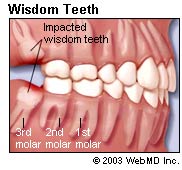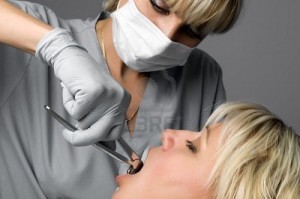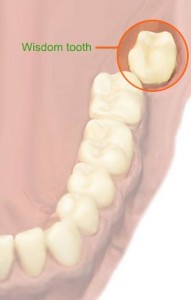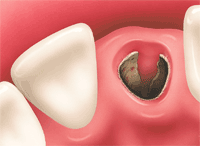As with any other dental procedures, teeth extraction required specific dental instruments to do so. Unlike our baby teeth which could be easily pulled out when they are wobbly or would naturally drop off in their due times, adult teeth are a different matter altogether. Because of their longer root length and stronger surrounding supporting tissues, adult or permanent teeth (or even baby teeth that are not loose) would require certain techniques and dental tools to remove them. Continue reading
Tag Archives: wisdom teeth extraction
Guide to Wisdom Teeth Removal
The emergence of wisdom tooth normally occurs between 18 to 24 years of age. The prevalence for at least one impacted (which the path of eruption of the tooth is blocked by another tooth or bone which therefore prevents it from assuming a normal position in the mouth) lower wisdom tooth is 72.7% in an age of 20 to 30 years. An impacted tooth is not a disease in itself but is considered an abnormal state. Continue reading
Wisdom Teeth Removal: General Vs. Local Anesthesia
 Wisdom teeth removal are frequently done for wisdom tooth tend to have not enough room to erupt in the jaws, being the last tooth to develop and emerge from the mouth (normally between 18 to 24 years of age), which can cause them to be impacted. If the path of eruption of the tooth is blocked by another tooth or bone which therefore prevents it from assuming a normal position in the mouth, it is called an impacted tooth. Â Continue reading
Wisdom teeth removal are frequently done for wisdom tooth tend to have not enough room to erupt in the jaws, being the last tooth to develop and emerge from the mouth (normally between 18 to 24 years of age), which can cause them to be impacted. If the path of eruption of the tooth is blocked by another tooth or bone which therefore prevents it from assuming a normal position in the mouth, it is called an impacted tooth. Â Continue reading
About Dry Socket
Have you ever experienced severe pain a few days after having your teeth extracted with no swelling on your face? Then you may be suffering from dry socket.
What is dry socket?
Dry socket, or otherwise known as alveolar osteitis, is by far the most frequent painful complication of tooth extractions. However it is uncommon overall, affecting only 1 to 3% of extractions. This condition of delayed healing, but not usually associated with infection, is common after wisdom tooth extraction due to the large tooth socket that is left behind which can easily dislodges the blood clot that is formed.
The term ‘alveolar’ refers to the jawbone that supports the teeth, while ‘osteitis’ refers to the inflammation of the bone which is limited to the site involved. Continue reading


